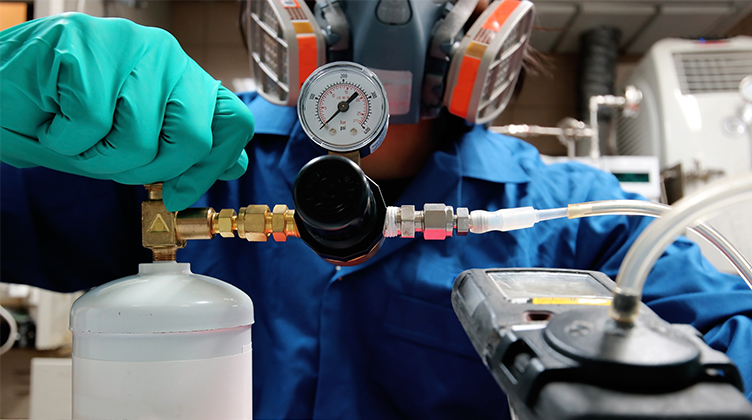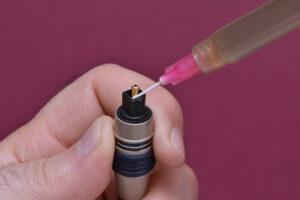
Gas detectors help protect us by catching dangerous gases. To do this, they need to stay sharp and give the right readings. Calibration, which means adjusting them to show correct readings, helps keep them ready. But mistakes during calibration can weaken a gas detector’s accuracy. This article shows common mistakes people make with calibration and how to dodge them. Avoiding these mistakes keeps gas detectors in tip-top shape.
When you calibrate detectors regularly, you stop problems and help them work right. Professional gas detector calibration services handle calibrations to keep everything running smoothly. These services catch and fix issues early, making gas detectors work even better. Let’s explore these mistakes and learn how to avoid them!
Various Common Mistakes you Must Avoid During Gas Detector Calibration
1. Skipping Regular Calibrations
Regular calibration keeps gas detectors trustworthy. When people skip calibrations, detectors lose their sharpness, and that can be risky.
Each detector needs its own schedule for calibration. Busy, high-risk places may need checks every week or month. Safer spots might need only two checks a year. Gas detector calibration services help create the best schedule for each detector. Sticking to regular calibrations helps you avoid missing leaks or unsafe gases.
2. Using Old Calibration Gas
Calibration gas can spoil over time, and old gas makes detectors show wrong results. Most calibration gas lasts only about a year or two.
Always check the dates on your gas and use fresh gas for every calibration. Many gas detector calibration services bring fresh gas and even take care of the old gas that’s expired.
3. Handling Calibration Gas Poorly
If people don’t handle calibration gas properly, it can leak or make detectors read wrong. Calibration gas should stay in a cool, dry place away from sunlight.
However, follow directions for storing gas correctly. Professional gas detector calibration services handle gas safely and keep detectors working accurately.
4. Setting the Wrong Gas Flow Rate
The gas flow rate needs to match what the detector requires. If it’s too fast or too slow, the detector may read the gas wrong.
Ultimately, always follow the manufacturer’s suggested flow rate. However, many calibration kits come with flow regulators for control. Gas detector calibration services use special tools to make sure flow rates stay exact.
5. Calibrating in a Messy Spot
Dust, moisture, or clutter can confuse gas detectors when they’re getting calibrated. In addition, messy places make detectors struggle to read correctly.
So, choose a clean, quiet spot with no mess for calibrations. Additionally, gas detector calibration services often work in neat areas to avoid any outside effects.
6. Forgetting to Zero the Detector First
Zeroing sets a fresh start point for a detector, letting it recognize true gas levels. Therefore, skipping this step causes wrong readings.
Zero your detector in a clean-air spot before using the calibration gas. Moreover, gas detector calibration services always begin with zeroing to keep calibrations accurate.
7. Ignoring Each Sensor’s Unique Needs
Each sensor type needs special care. For example, oxygen sensors and carbon monoxide sensors have different calibration rules.
However, read your device’s manual to learn each sensor’s needs. Therefore, experts at gas detector calibration services know these differences and adjust each device for the best accuracy.
8. Using the Wrong Gas Levels
Calibration gas needs to match expected levels. Using the wrong level of gas throws off calibration and gives incorrect readings.
Double-check gas levels before starting. Moreover, gas detector calibration services carry various gas levels to match each detector exactly.
9. Forgetting to Write Down Calibration Details
Tracking calibration details keeps everything in order. In addition, dates, gas levels, and notes on performance help spot patterns.
Keep a record of calibration details to find problems early. Additionally, gas detector calibration services often give reports and records to help stay on track.
10. Letting Untrained People Handle Calibration
Calibrating gas detectors takes skill. When untrained people try, they may skip steps or handle gas wrong.
Use only trained people for calibration. However, gas detector calibration services hire experts who know the tools and steps for each detector.
11. Not Adjusting for the Environment
Weather and surroundings affect calibration. Furthermore, hot, humid areas need different settings than cool, dry ones.
Calibrate your detectors to match where they’ll be working. Moreover, professional calibration services can adjust settings for real-world conditions.
12. Using Calibration Adapters Wrong
Calibration adapters help direct gas to the sensor. But using them wrong can lead to leaks or low flow.
Follow the manual’s steps when using adapters. Moreover, gas detector calibration services know how to fit adapters correctly to avoid mistakes.
13. Skipping Calibration to Save Money
Skipping calibrations may seem cheaper, but it leads to big problems. Faulty detectors can miss gas leaks, risking safety and legal issues.
In addition, regular calibration is a small cost for more safety. Many gas detector system calibration services offer options that keep costs down and safety high.
14. Ignoring Software Updates
Many gas detectors use software that needs updating for calibration. Skipping updates leaves the detector lagging in accuracy.
Therefore, follow software updates as recommended. Gas detector system calibration services handle software updates to keep each detector performing its best.
15. Not Following the Manufacturer’s Instructions
Each model has its own calibration steps. Ignoring these instructions can make detectors unreliable or even break them.
Follow the steps the manufacturer provides. Gas sensor calibration services know these guidelines well and follow them closely for each model.
The End Note
However, dodging these calibration mistakes keeps gas detectors sharp and ready to protect everyone. Each mistake can make detectors less accurate, so take calibration seriously. Learning these common mistakes and using good habits helps your gas detectors keep everyone safe.
Therefore, frequent gas detector calibration by trained people makes sure detectors stay accurate, last longer, and work correctly. Professional gas monitor calibration services follow high standards, making detectors work even better. With expert calibration, you can trust your equipment’s safety and quality. Stay aware of these mistakes, and create a safer place for everyone!




